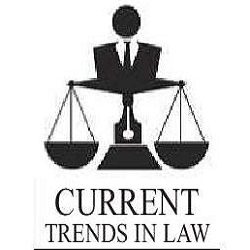Opposing Reservation
02 Dec 2024 11:37:57


By Adv. R. S. Agrawal :
On going through the entire material, it reveals that messages only
show feelings expressed as to Caste Reservation System. Such messages nowhere show that there was any attempt to
promote any enmity, hatred or ill-will against members of the SCs
and the STs. At the most it can be said that her
target was just the
complainant only.
THROUGH the judgement of the case- Vishal Badrinath Wadekar (29) a Software Engineer v. State of Maharashtra and others, delivered on November 29, 2024, Justice Urmila Joshi–Phalke at the Nagpur Bench of the Bombay High Court, has upheld the conclusion reached by the Special Judge (SC and ST (Prevention of Atrocities) Act, 198 and discharged the two accused - Priyamwada Choudhary (28) and her father Anupkumar (59) from Betul District in Madhya Pradesh, on the basis of settled principles.
According to the HC’s judgement in appeal, the Trial Court has rightly observed that to constitute an offence under section 3(1)(u)of the Act of 1989, there is nothing even prima facie to indicate that accused No.1 attempted to promote feeling of enmity or hatred or ill-will against the members of the Scheduled castes and the Scheduled Tribes.
It is just expression by her as to the Caste Reservation System.
The offence under section 3(1)(u)of the Atrocities Act will come into play only when any person is trying to promote enmity, hatred or ill-will against the members of the SCs and the STs.
On going through the entire material, it reveals that messages only show feelings expressed as to Caste Reservation System. Such messages nowhere show that there was any attempt to promote any enmity, hatred or ill-will against members of the SCs and the STs. At the most it can be said that her target was just the complainant only.
However, the accused-1 did not write any word which would create or promote enmity, hatred or ill-will against those who belong to SCs or STs.
The Atrocities Act has been enacted to improve socio-economic conditions of SCs and STs and to protect them from various indignities, humiliation and harassment.
The Legislation, thus intends to punish acts committed against vulnerable sections of our society for reason that they belong to particular community. While considering, whether there is a prima facie case exists or not, the court has to conduct a preliminary inquiry to determine whether narration of facts in the FIR discloses essential ingredients required to constitute an offence under the Atrocities Act. Thus, the Court has to apply its judicial mind to determine whether allegations levelled in the complaint, on a plain reading, satisfy the ingredients of the alleged offence.
In this case, after conducting a preliminary inquiry, the Judge below reached conclusion that ingredients are not established. It is well settled that at the stage of framing of charges, when the Magistrate or the Judge has to consider this question in a general way on the material placed before him/her by the Investigating Officer, veracity and effect of evidence, which the Prosecutor proposes to adduce are not to be meticulously judged. At the stage of framing of charge or while considering discharge application, it is to be seen whether there is sufficient ground for proceeding against accused. ‘Ground’ in the context, is not a ground for conviction, but a ground for putting accused on trial.
It is in the trial, guilt or innocence of accused determined and not at the time of framing of charge and, therefore, elaborate inquiry in sifting and weighing materials is not required. It is also not necessary to delve deep into various aspects. All that the Court has to consider is whether evidentiary material, if generally accepted, would reasonably connect the accused with the crime or not.
Thus, a duty is cast on the Judge to apply his/her mind to the material on record and if the court does not find sufficient material for proceeding against the accused, he/she can be discharged. On the other hand, if prima facie the case is made out, the charge can be framed.
The complainant placed reliance on the decision in the case of State by Karnataka Lokayukta, Police Station, Bengaluru v. M R Hiremath-(2019) 7 SCC 515, wherein the Supreme Court has laid down principle that at the stage of considering an application for discharge, the Court must proceed on the assumption that the material which has been brought on record by the prosecution is true and evaluate the material in order to determine whether facts emerging from material, taken on its face value disclose existence of ingredients necessary to constitute the offence or not.
In another decision of the case- State of Tamil Nadu, by Inspector of Police and Anti Corruption v. N Suresh Rajan and others-(2014) 11 SCC 709 also, it has been held that no mini trial is contemplated at the stage of at the stage of considering discharge application, but court to proceed with assumption materials brought on record by the prosecution are true.
Only probative value of materials has to be gone into to see if there is a prima facie case for proceeding against accused.
The court is not expected to go deep into the matter and hold that materials would not warrant conviction. Respondents have been prosecuted for offences under section 3(1)(u) and 3(1)(v) of the Atrocities Act on the basis of a report lodged by the complainant. As per allegations, he got acquainted with accused Priyamwada, who was taking education at the relevant time. They got involved in love affair and married in Koradi temple, though they kept the marriage secret from their family members. It is alleged that when the accused-girl came to know that the complainant belongs to “Chambhar” community, she suddenly changed her mind and denied to continue with relationship with the complainant.
There were exchange of messages between them on WhatsApp and she expressed her views on Caste Based Reservation System. It is alleged that she humiliated and insulted the complainant by written words and promoted feelings of enmity. Hatred and ill-will against members of SCs and STs. On the basis of said report police registered crime against accused woman and her father (accused-2).
After investigation, the I.O. filed chargesheet. Thereafter accused persons filed an application contending that even taking into consideration allegation at its face value, the same do not constitute any offence or make out a case against them and prayed for their discharge. After hearing both sides, the Judge below held that literature published nowhere discloses any alleged offence on the part of the accused persons and discharged them and dismissed the appeal being without merit.
